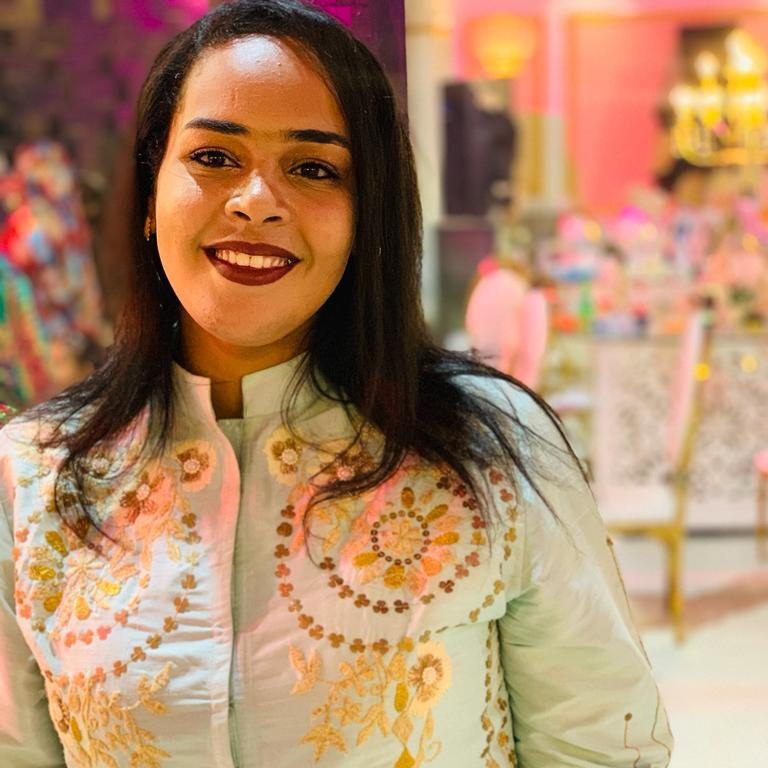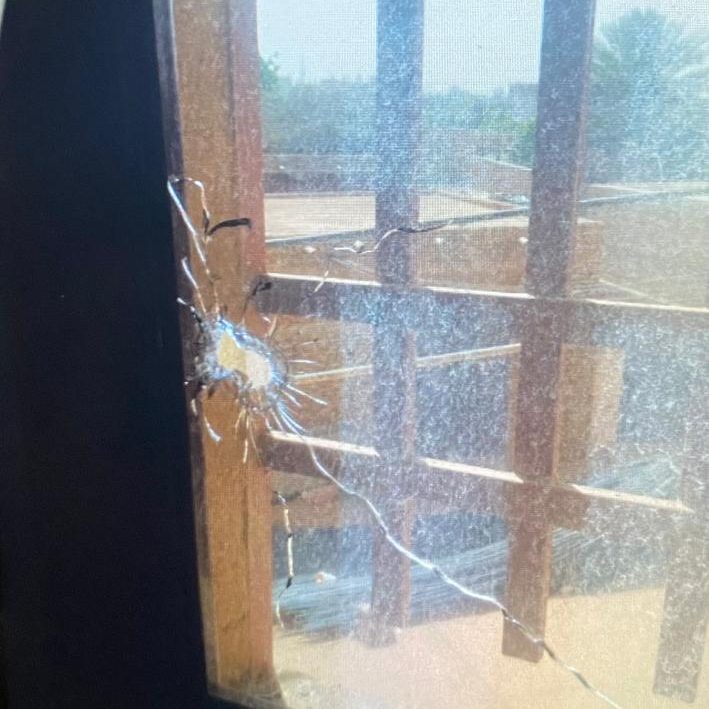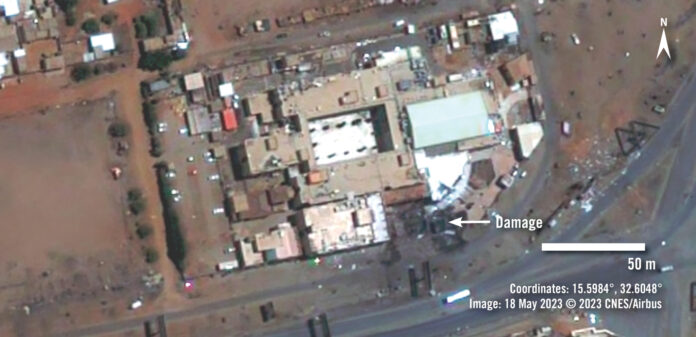NAIROBI (KAAB TV) – Extensive war crimes are being committed in Sudan as the conflict between the Rapid Support Forces (RSF) and Sudanese Armed Forces (SAF) ravages the country, Amnesty International said in a new report.
The report, ‘Death Came To Our Home’: War Crimes and Civilian Suffering In Sudan, documents mass civilian casualties in both deliberate and indiscriminate attacks by the warring parties. The report also details sexual violence against women and girls, targeted attacks on civilian objects such as hospitals and churches, and extensive looting.
Some of the violations documented – such as attacks targeting civilians, attacks on humanitarian infrastructure, rape and other sexual violence, and pillage – amount to war crimes. The report focuses primarily on Khartoum and West Darfur.
“Civilians throughout Sudan are suffering unimaginable horror every single day as the Rapid Support Forces and Sudanese Armed Forces recklessly vie for control of territory,” said Agnès Callamard, Amnesty International’s Secretary General.
“People are being killed inside their homes, or while desperately searching for food, water and medicine. They are being caught in crossfire while fleeing, and shot deliberately in targeted attacks. Scores of women and girls, some as young as 12, have been raped and subjected to other forms of sexual violence by members of the warring sides. Nowhere is safe.
“The spiralling violence in the region of Darfur, where the RSF and allied militias are causing untold death and destruction, is raising the spectre of the scorched earth campaign of previous decades, at times involving some of the same actors.
“The RSF and SAF, as well as their affiliated armed groups, must end their targeting of civilians, and guarantee safe passage for those seeking safety. Urgent steps must be taken to ensure justice and reparations for victims and survivors.”
Since 15 April 2023, the SAF (led by Sudan’s Sovereign Council Head General Abdel Fattah al-Burhan) and the paramilitary RSF (led by General Mohamed Hamdan Dagalo, commonly known as Hemedti) have been fighting for control of Sudan.
Considering the scale of fighting and organization of both sides, the situation qualifies as a non-international armed conflict under the Geneva Conventions. As such, the fighting between the parties is governed by international humanitarian law, which seeks to protect civilians and other non-combatants in armed conflict, and international human rights law, which continues to be applicable. Certain serious violations of these rules constitute war crimes, for which individual soldiers and commanders can be held criminally responsible.
Civilians killed in crossfire
Men, women and children have been caught in crossfire as both sides, often using explosive weapons with wide area effects, have launched frequent attacks in densely populated civilian neighbourhoods.
Fighting began in the Kalakla neighbourhood in southern Khartoum on 20 April. Kodi Abbas, a 55-year-old teacher, told Amnesty International that two of his sons, Hassan, six, and Ibrahim, eight, and his nephew Koko, seven, were killed as they tried to escape gunfire.
He said: “My wife and my children ran away from home when clashes broke out in our neighbourhood… but my two youngest boys… were small and couldn’t run away fast enough… I don’t know who shot them. The war killed them.”
Amnesty International has not been able to ascertain which side fired the shots that killed the three boys.
Ala’ Fawzi al-Mardi, a 26-year-old doctor, was killed in her home in Omdurman’s Hay al-Manara neighbourhood on 15 April, the day clashes first erupted.
Fawzi al-Mardi, her father, told Amnesty International that his wife was also seriously wounded. He said: “That morning we woke up to hell. The sound of shooting and bombing was everywhere, relentless… I was worried about my daughter Ala’ who had gone to work at the hospital.
“A few minutes after she had arrived home, a bullet came through the living room window, and it hit my wife in the face. It went through the right side of her face and neck, and then it hit Ala’ in the chest, killing her instantly. That one single bullet destroyed our family in the space of a few seconds… As soon as [Ala’] arrived home, where she should have been safe, death came to our home.”
Many civilians told Amnesty International they had been injured and their relatives killed where they sought safety. On 6 June, repeated strikes with ground-launched projectiles in West Darfur killed and injured dozens of civilians in and around the El Geneina University female dorms, where many people were sheltering after fleeing fighting in their neighbourhoods.
Deliberate targeting of civilians
Civilians have been deliberately killed or injured in targeted attacks. Survivors and other witnesses generally identified RSF members as the perpetrators.
On 13 May, RSF members broke into the Mar Girgis (St George’s) Coptic Church complex in the Bahri area of Khartoum. Several witnesses said they shot five members of the clergy, and stole money and a gold cross.

On 14 May, Dr. Adam Zakaria Is’haq, a 38-year-old medical doctor and human rights defender, was killed along with 13 patients at the Markaz Inqadh al-Tibbi (Medical Rescue Centre), a health clinic in the Jamarik neighourhood of El Geneina. Two of the doctor’s colleagues told Amnesty International that armed Arab militia members shot the 14 victims.
One said: “Dr. Adam… was treating sick people at a small clinic when he was killed, because the main hospital in El Geneina was destroyed by the same armed militia and RSF in late April. He was shot in the chest. He left behind his wife and two young boys, aged four and six.”
Ethnically motivated attacks in West Darfur
As tensions increased in West Darfur, many ethnic Masalit people fled to eastern Chad. People who fled El Geneina told Amnesty International that the town had been attacked by heavily armed Arab militias, supported by RSF fighters.
On 28 May, dozens of civilians were killed in Misterei, a town south-west of El Geneina, when clashes broke out between RSF and allied militias, and Masalit armed groups. Residents told Amnesty International they buried 58 civilians killed that day.
In one family, five brothers were shot dead in their home, including Al-Haj Mohamed Abu Bakr, Zeinab Ibrahim Abdelkarim’s husband. The mother-of-two, aged 27, said: “Six RSF members broke into our home at 8am and went into the room where my husband and his four brothers were and shot them all dead… The RSF then came to the room where I was staying with my children and 12 other women and children… They beat us with sticks and whips and asked, ‘Where are the guns?’, and then stole our phones.”

International humanitarian law forbids the deliberate targeting of civilians, as well as attacks that fail to distinguish between civilians and combatants, and between civilian objects and military objectives.
Sexual violence
Scores of women and girls, some as young as 12, have been subjected to sexual violence, including rape, by members of the warring sides. Some were held for days in conditions of sexual slavery.
In most cases documented by Amnesty International, survivors said the perpetrators were RSF members or from allied Arab militias. Rape, sexual slavery, and other forms of sexual violence committed in the context of an armed conflict are war crimes.
A 25-year-old woman from El Geneina told Amnesty International that three armed Arab men in civilian clothes forced her into the Civil Records building in the al-Jamarik neighbourhood on 22 June, where they raped her.
She said: “There is no safety anywhere in El Geneina. I left my home because there was shooting everywhere… and these criminals raped me. Now I’m afraid I may be pregnant… I can’t cope with that.”
In another case, a group of 24 women and girls were abducted by RSF members and taken to a hotel where they were held for several days in conditions amounting to sexual slavery. Many survivors have had no access to medical and psychosocial support.
Many health and humanitarian facilities have been destroyed or damaged across the country, depriving civilians of food and medicine, and exacerbating an already dire situation. Most documented cases of looting involved RSF members. Intentional attacks on humanitarian personnel or objects, or on health facilities or medical units, amount to war crimes.
Recommendations
Amnesty International is calling on the UN Security Council to swiftly extend the arms embargo that currently applies to Darfur to the whole of Sudan, and ensure it is enforced.
“The international community should significantly increase humanitarian support for Sudan, and neighbouring countries must ensure their borders are open to civilians seeking safety,” said Agnès Callamard.
“The international community must also immediately extend the existing arms embargo to all of Sudan and ensure its enforcement. Countries with significant leverage over the warring parties must use their influence to end the violations.
“The Human Rights Council should heed the calls from the Intergovernmental Authority on Development, and establish an independent investigative and accountability mechanism to monitor, collect, and preserve evidence of human rights violations in Sudan.”


